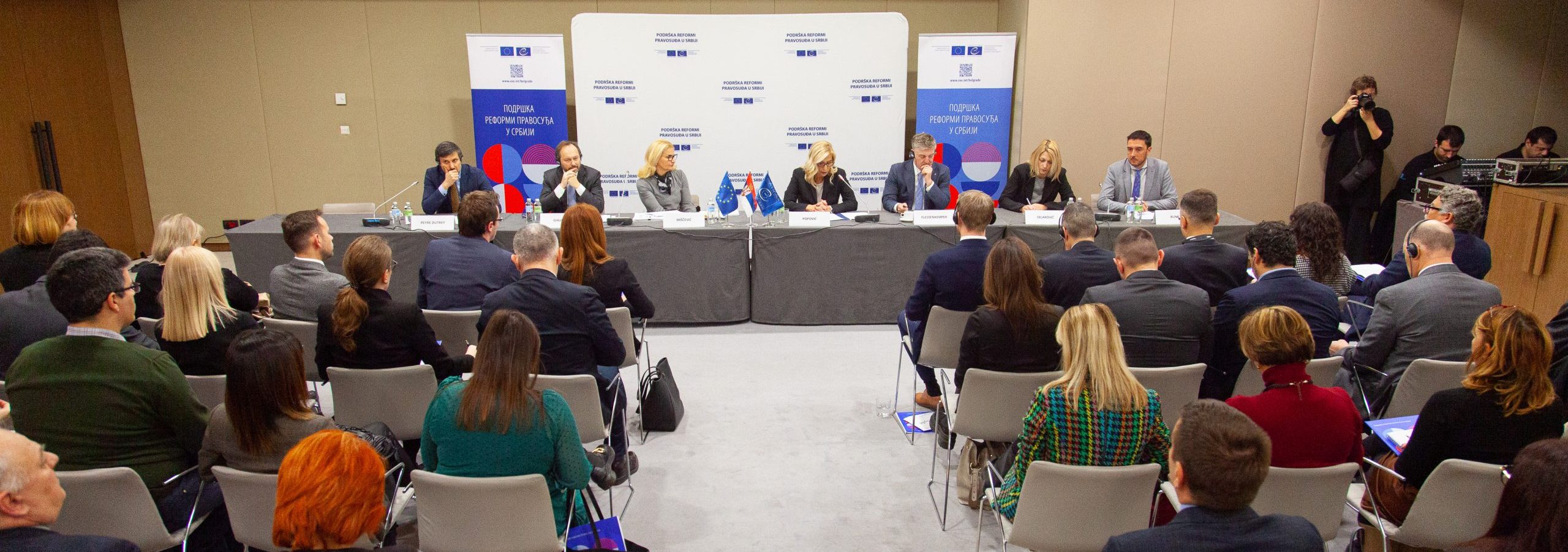Judicial reforms are important for the citizens of Serbia because they will bring about a more autonomous judiciary and independent prosecution, and the rule of law remains the main pillar of Serbia’s European integration, the EU Ambassador to Serbia Emanuele Giaufret said at the final public debate on the set of judicial laws.
“The implementation of the law will be the focus of the European Union and the full implementation of these laws will bring progress to Serbia in chapters 23 and 24. We also expect Serbia to adopt the recommendations made by the Venice Commission on the proposals of these laws so that we can say that the legal solutions are fully in line with European standards and practices”, said Giaufret.
The EU ambassador added the Venice Commission said that for real change, a change in political and legal culture is also needed, and while political and judicial authorities have a primary responsibility, as civil society organisations and citizens, as well have an important role to play.
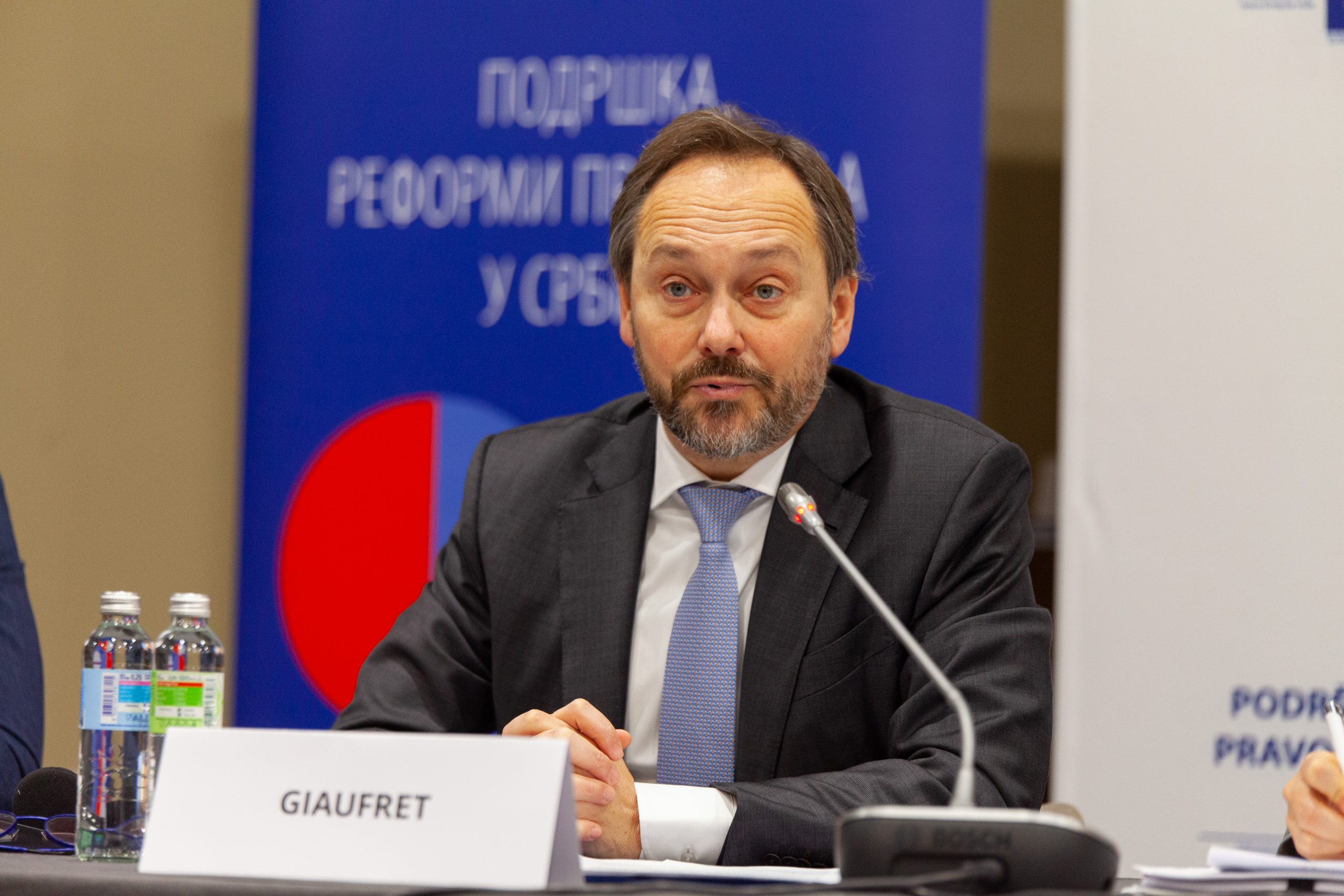
“If the reforms are implemented in a proper way, citizens and economic operators will benefit the most, and we call on the entire judicial system to accept changes that should bring greater independence to judges and prosecutors,” said Giaufret
Minister of Justice Maja Popović, who led the entire process of amending judicial laws and public consultations, said that the new legal solutions will bring an environment in which every citizen will be able to exercise their rights before the judiciary, which is free from political influence.
“We wanted the process to be transparent and inclusive. The Venice Commission gave a positive opinion with certain recommendations that we will accept. Our intention is to strengthen the judicial system and thereby fulfil the obligations we took on in the process of European integrations,” said Popović.
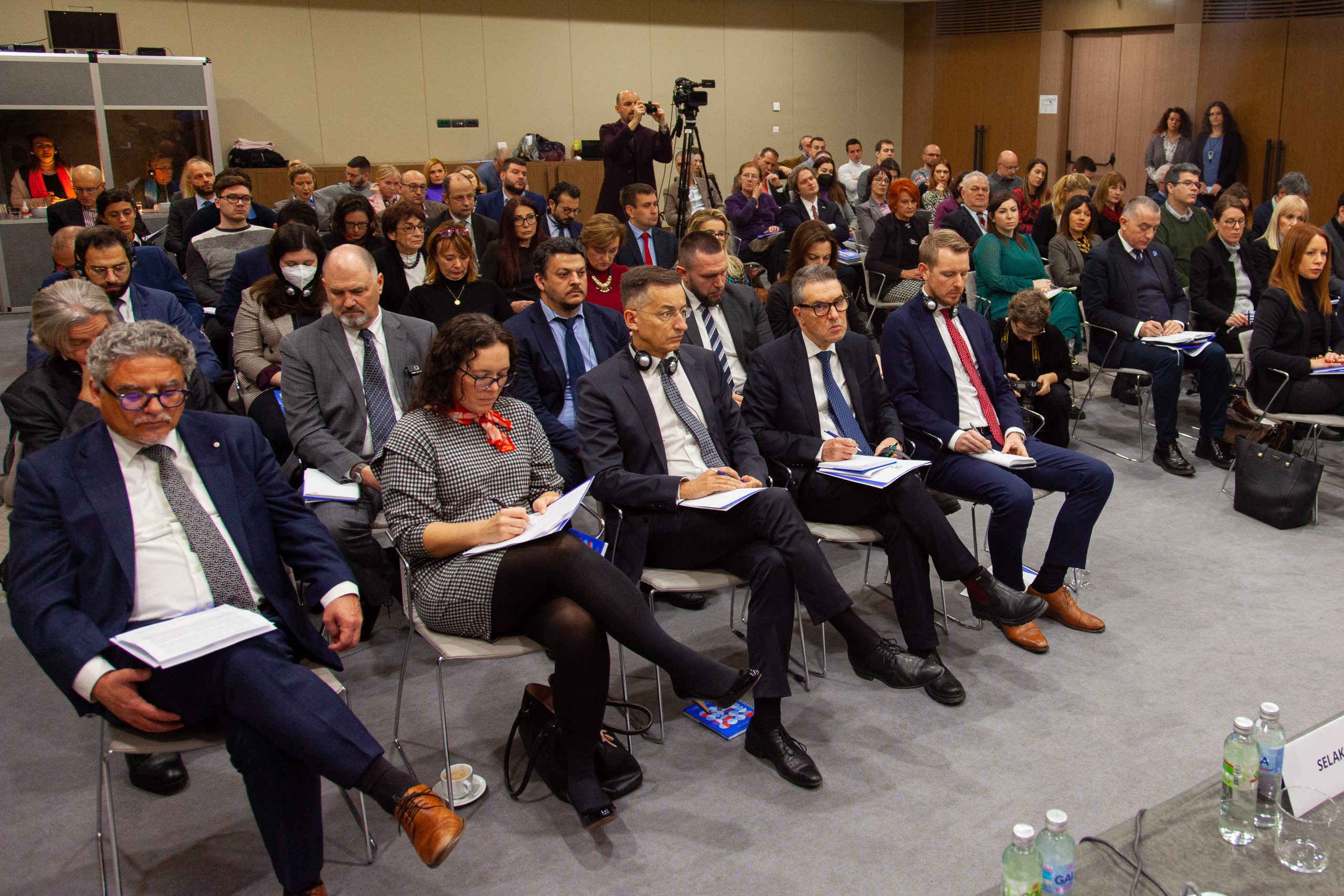
The Minister of European Integration in the Government of Serbia, Tanja Miščević, reminded that by adopting a set of judicial laws, a large part of the transitional benchmarks from Chapter 23 will be fulfilled, but also that they represent an important step towards the establishment of stable democratic institutions, which is the essence of the European integration process.
“We are aware that the rule of law is the basic and first condition for progress in the EU accession process. We have to work on changing people’s awareness, but also on other issues in the area of the rule of law, such as the Strategy for the fight against corruption, the drafting of a set of media laws and the implementation of the Media Strategy, as well as the protection of basic human rights”, stated Miščević.
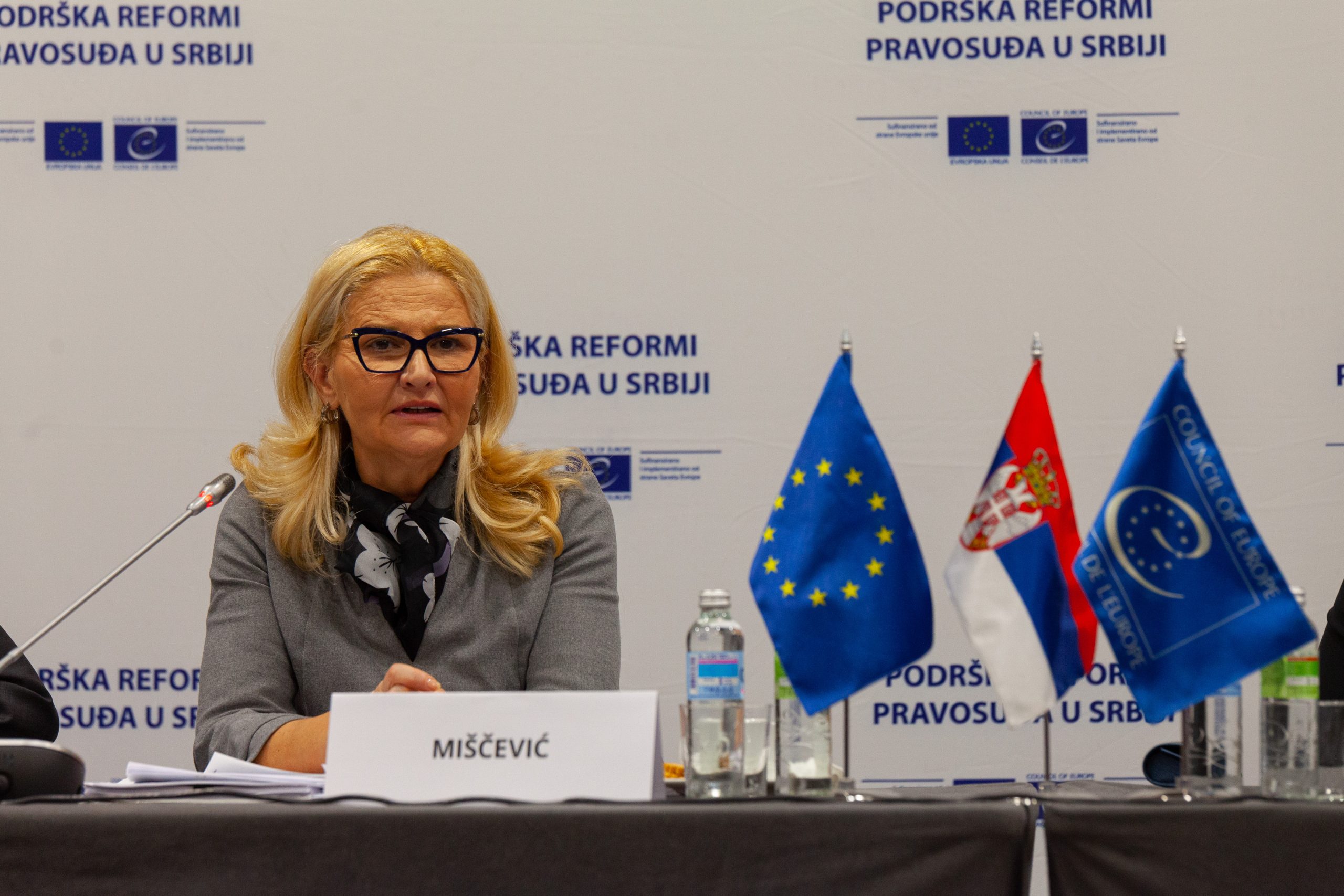
The Head of the Council of Europe office, Tobias Flessenkemper, said that the planned reforms are a big step that require transformation of the entire society, not just the law.
“The transformation started back in 2003 when Serbia joined the Council of Europe and decided to reach European standards. The Venice Commission recognised that the constitutional changes were held in a constructive atmosphere and that there was a dialogue between the key actors”, stated Flessenksemper.
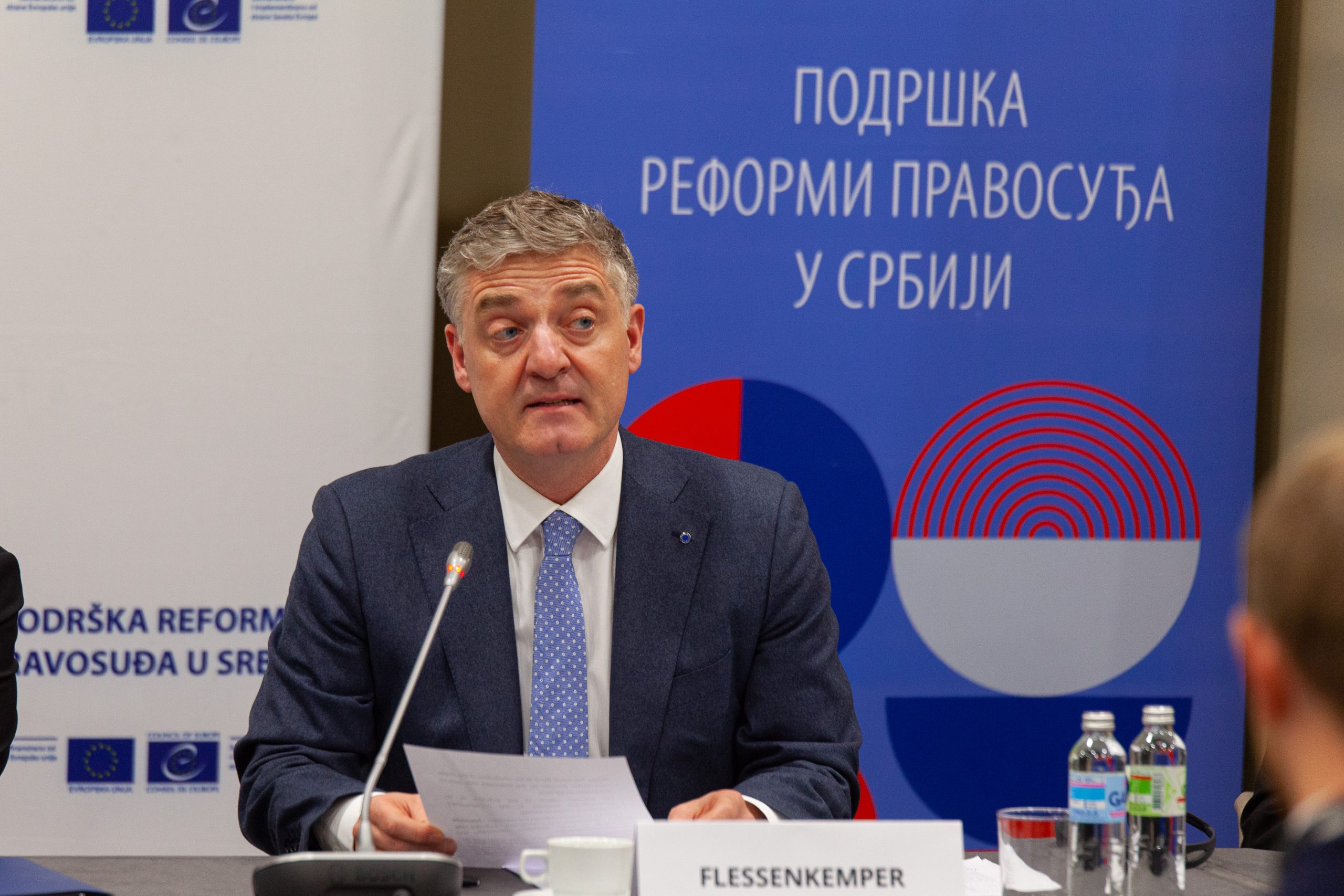
The process of public consultations regarding the set of judicial laws was held within the framework of the “EU for support of judicial reform” project, which has been implemented in Serbia by the Council of Europe and the European Union since 2022.

